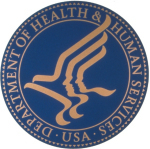by
Astrid Fiano, DOTmed News Writer | November 10, 2009

Funding infection control
in surgery centers
Department of Health and Human Services Secretary Kathleen Sebelius has announced availability of up to $9 million in American Recovery and Reinvestment Act (ARRA) funds to reduce health care-associated infections (HAIs) specifically in stand-alone or same-day surgical centers, for state survey agencies in 43 states.
As reported (DM 9070, 9631) HAIs are a major concern of the HHS. Earlier this year, in light of reports that suggested that patient safety measures have worsened and that many Americans are not receiving recommended medical care, significant blame was placed on the rise of HAIs acquired during stays in a health care setting (such as hospitals and nursing homes). HAIs develop from different bacteria infecting patients. The most common HAI-causing bacteria is methicillin-resistant Staphylococcus aureus, or MRSA. MRSA-associated hospital infections have more than tripled since 2000 according to HHS' Agency for Healthcare Research and Quality's (AHRQ) Healthcare Cost and Utilization Project. HHS reports that four categories of infections account for about three-quarters of HAIs in acute care hospital settings: surgical site infections; central line-associated bloodstream infections; ventilator-associated pneumonia, and catheter-associated urinary tract infections.
Ambulatory care facilities are a major part of the health care service shift to outpatient settings. The number of such facilities participating in Medicare grew to 5,200 in early 2009. HHS says that ambulatory care facilities account for nearly half of all same-day surgery in the U.S.
"Because of the Recovery Act, millions of patients who go to stand-alone surgical centers will have greater assurance that they won't come home with a new infection," said Secretary Kathleen Sebelius on the HHS website. "Residents in these 43 states will continue to see benefits from the Recovery Act not only by addressing health care-associated infections, but by putting people to work to solve an important issue and improve the quality of life for Americans."
In this new initiative, accredited facilities will be surveyed by CMS-approved private accrediting organizations. Surveyors in 43 states will survey approximately 1,300 ambulatory surgical centers in the U.S. during the next 12 months. The surveyors will be using a new CMS survey process for ambulatory surgical centers with an infection control tool developed in conjunction with the Centers for Disease Control and Prevention. Twelve states have already volunteered to start the surveying during the last fiscal year.
